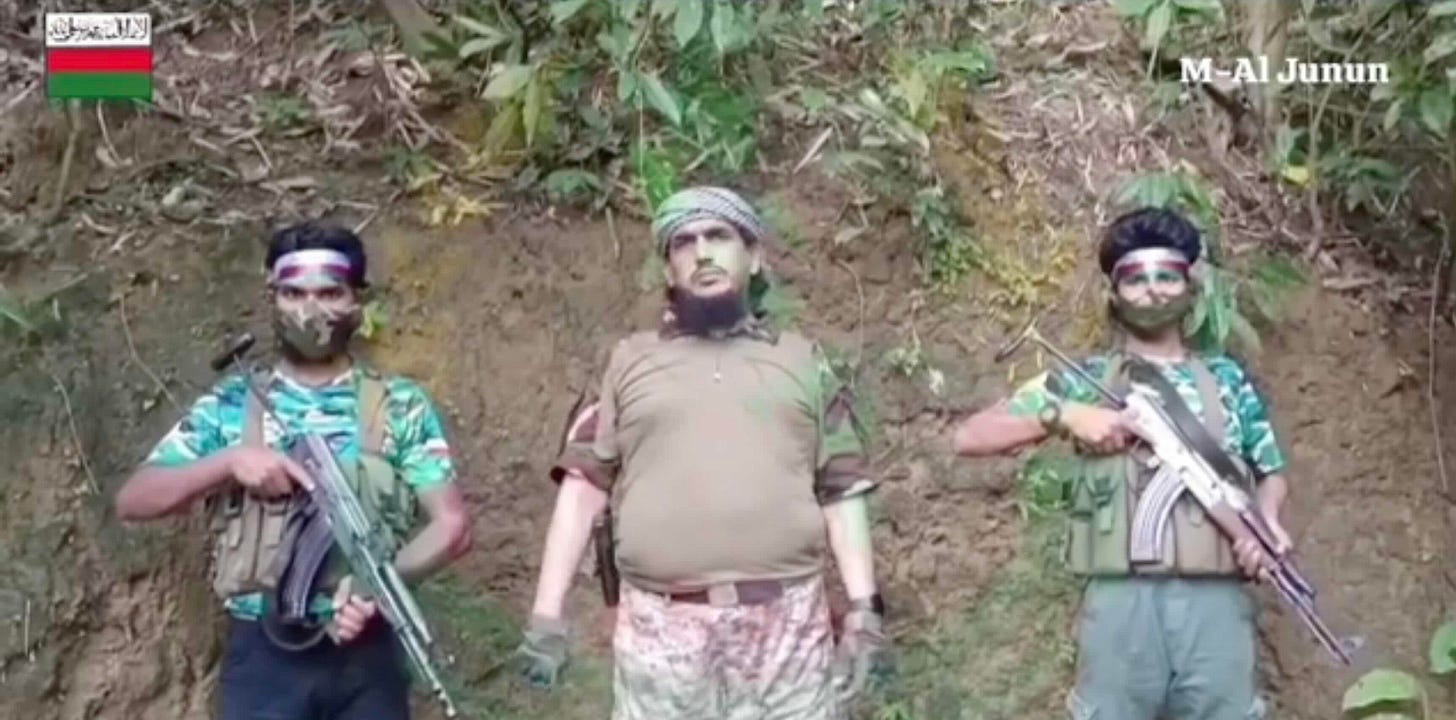ARSA Chief Threatens Rohingya Aligned with Arakan Army
ARSA's Chilling Message and the Politics of Rohingya Resistance
A recent video released by the Chief of the Arakan Rohingya Salvation Army (ARSA), Ataullah, has sent ripples through the Rohingya community. The message contains no condemnation of the Myanmar military and instead focuses its wrath on the Arakan Army (AA) and takes a chilling turn with a direct address to Rohingya who have allied themselves with AA forces. The ARSA Chief’s message is unequivocal in its condemnation, declaring that any Rohingya fighting alongside the Arakan Army has abandoned Islam and crossed a moral boundary. His statement, both incendiary and exclusionary, lays down the consequences for those who don’t repent:
“To the Rohingya who are fighting in the Arakan Army, you have turned away from Islam, and you are no longer among Muslims. You still have time to repent to Allah and return to Islam. You claim that you are helpless and that you were forced to join the Arakan Army, but by fighting against us and oppressing other Rohingya by raiding their villages, you have crossed a line. We will treat you the same way we treat the Arakan Army. You have seen what we did recently in Buthidaung, and you are well aware of the consequences. So leave the Arakan Army now.
To the rest of the Rohingya community: do not bury those who are killed while fighting against us with the Arakan Army in a Muslim graveyard. Instead, bury them in Sitha Khala, the non-Muslim graveyard. According to Hadith and Quran, they are considered non-believers, and their burial should reflect that.”
These words are grimly reminiscent of a story I reported for the Dhaka Tribune some time ago. Then, it was Ko Ko Linn of the Rohingya Solidarity Organisation (RSO) issuing a similar command against ARSA members. In that recording, which circulated among Rohingya camps in Ukhiya following the destruction of the Zero Point camp, Ko Ko Linn called on his followers to slaughter ARSA members and deny them the traditional Muslim funeral rites. The message was brutal and visceral. He ordered them to “Kill them like the way you kill mosquitoes. Kill them like the way you kill insects,” and instructed his followers to “drag them from the shelters and kill them by stabbing them.” The RSO chief’s chilling pronouncement extended to the final rites: “They don’t deserve funeral prayers. They should not be given a funeral shroud.”
There is a bitter irony to this escalation of threats and the moral justification both ARSA and RSO have leaned upon to demonise their own community members. It wasn’t so long ago that ARSA and the Arakan Army managed to coexist in an uneasy yet pragmatic alliance. In 2020, I spoke with Hashim, a senior ARSA commander, who confirmed that a tacit understanding existed between ARSA and AA; they each pursued their interests without interference from the other. However, regional politics have drastically shifted these dynamics. Bangladesh is no longer tolerant of ARSA’s presence and now sees it as a liability and has moved decisively to curb its influence. Dhaka has also resurrected the RSO to act as a counterforce to ARSA, enlisting it for its own interests in the camps, while also supporting the allied Arakan Rohingya Army (ARA). For its part, the Arakan Army has recalibrated its approach toward the Rohingya as well, leveraging these shifting alliances for strategic gain. Today, RSO, ARSA, and ARA forces have each aligned themselves with the Myanmar junta, and have turned to forced recruitment of Rohingya fighters, leaving the community caught in an increasingly perilous crossfire.
This shift has unleashed a wave of violence that is almost incomprehensible. See this Amnesty Report for a flavour of what is going on. Villages have been reduced to ashes, and entire communities displaced. Forced recruitment is just the beginning of this ruthless cycle. Killings, massacres, and brutal raids have left the Rohingya caught between warring factions, often with nowhere to turn and no allies to seek solace from. For the Rohingya, this cycle of violence signifies more than the loss of homes or lives. It represents a loss of community, faith, and humanity.
The ARSA Chief’s message illustrates how deeply fractured the Rohingya resistance has become. His instructions to deny burial in Muslim graveyards to those killed in combat against his forces invoke religious doctrine to justify exclusion. The invocation of Islam here is strategic, a means of legitimising acts that would otherwise be unthinkable within the Rohingya community. But it also sends a chilling reminder: alliances are no longer driven by ideology or shared grievances against the Myanmar junta but by power plays and survival strategies.
In this violent landscape, ordinary Rohingya - in the refugee camps and in Arakan - suffer the most, pressured by all sides and left vulnerable by the in-fighting among the very groups once claiming to fight for their freedom.

